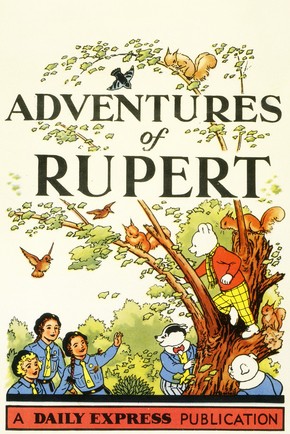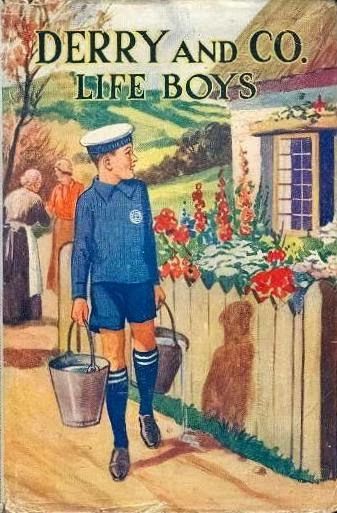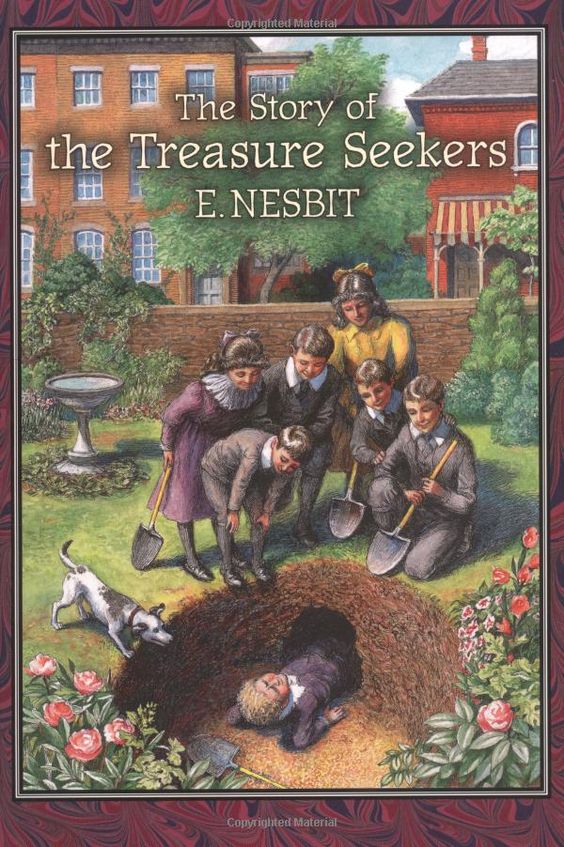|
|
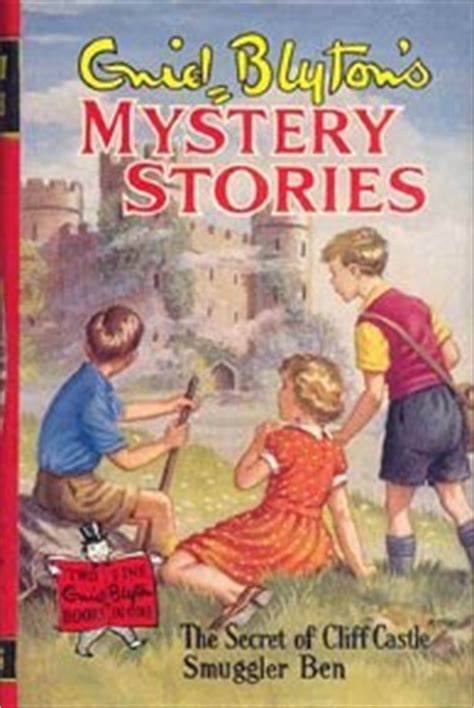 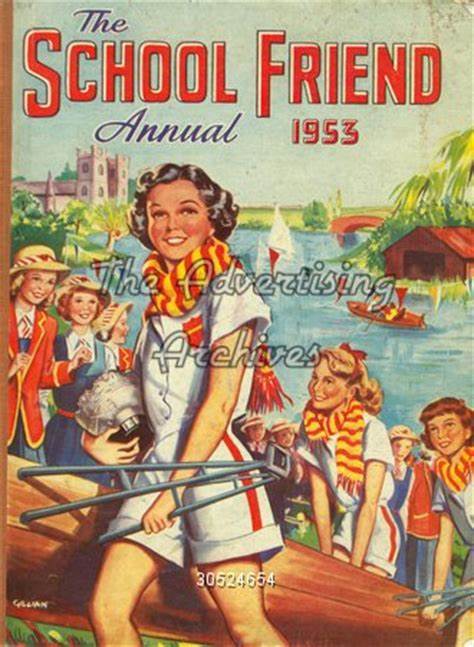 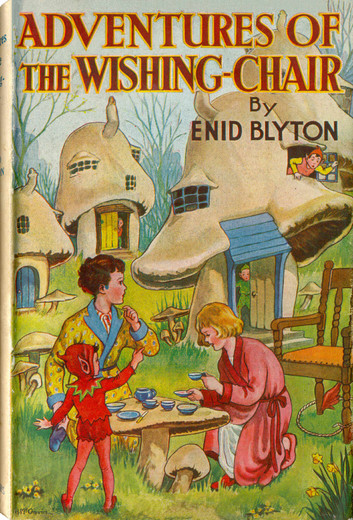 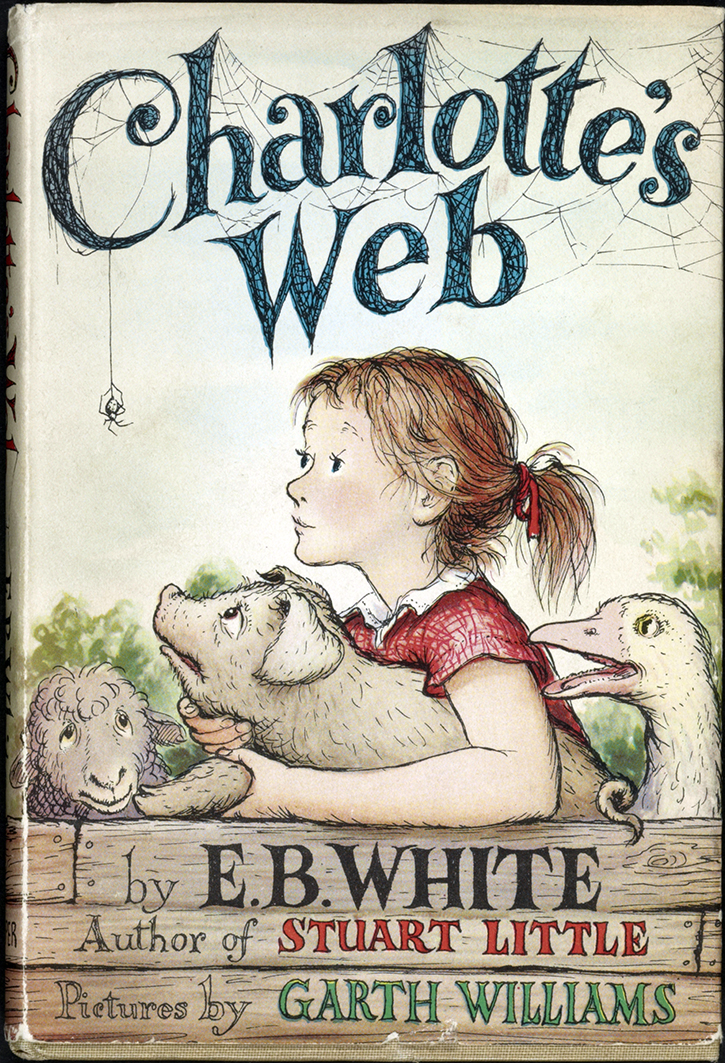 Previous "Growing Up" articles:
December 2021 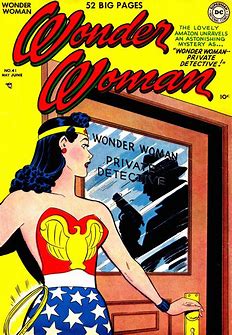 In
1950, I left home. I was four years old. I packed my teddy bear, a
couple of handkerchiefs, and one of my favourite Mabel Lucie Attwell
books into a small, battered old suitcase an ageing relative had given
to me as a gift, I opened the front door and walked up the long drive
to the wooden gates (shortly to be replaced by wrought iron gates my
father made himself), opened one of the gates and stood at the
threshhold of a new life. Something had upset me - My Mum was just a
couple of yards away, weeding the front garden - it was, I recall, a
beautiful summer's day, just perfect for starting a new life away from
the misery of my life in Brockworth. I intended to walk down the road,
get on the bus to the city, make my way to the railway station and
board a train for somewhere, I didn't know where, I hadn't yet made up
my mind. If you think my parents were irresponsible, watching me open
the garden gate and stand on the pavement next to the massive telegraph
pole anchored with inch-thick steel rope to the concrete pavement,
you're entirely wrong. This was 1950. No one in our street had a car.
Deliveries of everything other than the royal mail parcels were made by
horse and cart, and it certainly wasn't dustbin day, when the men would
lift our dustbins easily onto their shoulders, then slide open the
curved lids of the containers, and dump the contents inside. The street
was entirely deserted. Mum let me get a couple of yards away from the
gates, which I had carefully shut, before gently taking my hand with a
smile and leading me back inside the garden, saying 'Let's get some of
your cars and play in the earth, shall we?' In
1950, I left home. I was four years old. I packed my teddy bear, a
couple of handkerchiefs, and one of my favourite Mabel Lucie Attwell
books into a small, battered old suitcase an ageing relative had given
to me as a gift, I opened the front door and walked up the long drive
to the wooden gates (shortly to be replaced by wrought iron gates my
father made himself), opened one of the gates and stood at the
threshhold of a new life. Something had upset me - My Mum was just a
couple of yards away, weeding the front garden - it was, I recall, a
beautiful summer's day, just perfect for starting a new life away from
the misery of my life in Brockworth. I intended to walk down the road,
get on the bus to the city, make my way to the railway station and
board a train for somewhere, I didn't know where, I hadn't yet made up
my mind. If you think my parents were irresponsible, watching me open
the garden gate and stand on the pavement next to the massive telegraph
pole anchored with inch-thick steel rope to the concrete pavement,
you're entirely wrong. This was 1950. No one in our street had a car.
Deliveries of everything other than the royal mail parcels were made by
horse and cart, and it certainly wasn't dustbin day, when the men would
lift our dustbins easily onto their shoulders, then slide open the
curved lids of the containers, and dump the contents inside. The street
was entirely deserted. Mum let me get a couple of yards away from the
gates, which I had carefully shut, before gently taking my hand with a
smile and leading me back inside the garden, saying 'Let's get some of
your cars and play in the earth, shall we?'
I was four years old, and in all probability, I had wanted to do
something that was not allowed, and, temporarily furious, I had packed
Teddy and my few belongings and declared my intention of leaving home.
The adventure was extremely short-lived, because I was easily persuaded
to come back inside and play. Dad would have been at work, my sister
Jean, four years older than me, would have been at school, and Mum was
a stay at home Mum. I was always easily persuaded to play with toy
cars, or to colour a picture, or to read a book, or to listen to the
radio. I never left home again, much as I would have enjoyed travelling
on a train. When we went on holiday, we usually caught the bus to
Gloucester, then walked to the coach station and caught a Black and
White coach to Victoria Station in London, and finally a second coach
to Ramsgate, where we holidayed for the first fifteen years of my life,
staying in a boarding house a few yards from the beach. Black and White
Coaches were the most familiar to me, a welcome change from the green
and cream Bristol Omnibus Company double deckers we caught into the
city. The coaches were much more comfortable. We stopped at
Stokenchurch in Buckinghamshire, where we had a slap-up meal including
one of those little slices of yellow fruitcake with the enormous glacé
cherries and the currants wrapped in sellophane, which I adored. The
boarding house was run by Uncle Bert, not a real Uncle but someone my
Dad knew from his childhood, and who, with his wife, occasionally
visited us in Brockworth to spend a few days. We occupied one big
bedroom with a double bed and two single beds, and we went out after
breakfast, not returning until it was time for our evening meal. 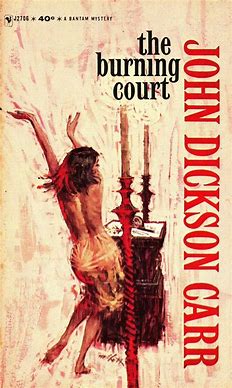 When
I was a little older, certainly older than four, and approaching
teenage years, I was allowe3d to leave the house and walk down to the
sea front to watch the sea coming in or going out. The long days of
those two week holidays in the summer school break were spent on the
beach, where we would dig sandcastles and romp in the sea, eat ice
creams and visit the entertainment halls where I would put pennies in
slots, occasionally winning a small prize, or play bingo, where there
were more opportunities for winning prizes; there was always plenty to
do in Ramsgate, and where we felt like a long walk, we would walk the
cliffs to the next resort, Broadstairs, which was more sedate and less
"developed" than Ramsgate. On the day we went home after our two weeks,
Dad and I would walk down for a last look at the sea before catching
the coach back to Victoria and thence back to Gloucester for the final
leg of our journey home to 72 Boverton Drive, Brockworth. The thing I
remember most about our home in Gloucester was the fact that the front
door wouldn't open. It wasn't until we were on the point of moving out
that Dad finally fixed it. I remember the interior layout, of course.
Two identical rooms, a front room and a dining room, and a small
kitchen, which contained one of those tall units with a pull-down front
and cupboards below and above. Next to that, a kitchen table on which
all of our food was prepared. On the opposite wall was the sink and
draining board, and on the back wall, a pantry, in which the fresh food
like meat and butter was stored. There was a hole in the back wall of
the pantry which was filled with some kind of mesh that allowed the
food to keep cold - no refrigerator, no washing machine. We didn't have
a refrigerator until 1963, when we moved to the three-bedroomed flat
above the shop in Stevenage - that was the same year we first got a
television. When
I was a little older, certainly older than four, and approaching
teenage years, I was allowe3d to leave the house and walk down to the
sea front to watch the sea coming in or going out. The long days of
those two week holidays in the summer school break were spent on the
beach, where we would dig sandcastles and romp in the sea, eat ice
creams and visit the entertainment halls where I would put pennies in
slots, occasionally winning a small prize, or play bingo, where there
were more opportunities for winning prizes; there was always plenty to
do in Ramsgate, and where we felt like a long walk, we would walk the
cliffs to the next resort, Broadstairs, which was more sedate and less
"developed" than Ramsgate. On the day we went home after our two weeks,
Dad and I would walk down for a last look at the sea before catching
the coach back to Victoria and thence back to Gloucester for the final
leg of our journey home to 72 Boverton Drive, Brockworth. The thing I
remember most about our home in Gloucester was the fact that the front
door wouldn't open. It wasn't until we were on the point of moving out
that Dad finally fixed it. I remember the interior layout, of course.
Two identical rooms, a front room and a dining room, and a small
kitchen, which contained one of those tall units with a pull-down front
and cupboards below and above. Next to that, a kitchen table on which
all of our food was prepared. On the opposite wall was the sink and
draining board, and on the back wall, a pantry, in which the fresh food
like meat and butter was stored. There was a hole in the back wall of
the pantry which was filled with some kind of mesh that allowed the
food to keep cold - no refrigerator, no washing machine. We didn't have
a refrigerator until 1963, when we moved to the three-bedroomed flat
above the shop in Stevenage - that was the same year we first got a
television.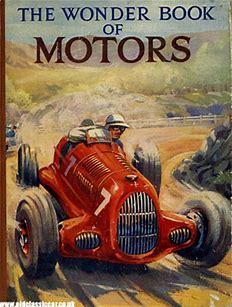 There
was an old gas cooker with an eye-level grill in the kitchen. Compared
with today's fitted kitchens and appliances, it was primitive, but we
ate well, and we were never bothered with upset stomachs because our
food wasn't chilled in a refrigerator. I don't recall the butter ever
being runny or unusable. My favourite food from a very early age was
sausages, which we bought from Mr Jacomelli the butcher in the little
parade of shops at the end of Boverton Drive. On one side of the road
there was the general store run by Mr Ellis, above whose shop Jean was
born in 1941. Between then and 1946, when I was born, the family must
have moved into 72 Boverton Drive. I was proud to know that of all the
houses in the Drive, ours and next doors - they were semi-detached
three bedroomed villas, our two gardens were far and away the biggest.
Next door was a family of six, I forget their name, but they moved out
in 1948, making way for Harold and Iris Hughes and their four children,
Adrian and his sister, and the ginger-haired twins Nigel and Norman,
who were two years older than me. They were Methodists. I don't say
that detrimentally, of course, but simply to illustrate the point that
the parents seemed to be much stricter than mine. What's more, they
didn't use their front room. What? They kept it for best. Best what?
They rarely had visitors, and when they did they were entertained in
the dining room. We played together, Nigel, Norman and I, despite our
age difference. They taught me to climb trees, taking me higher than I
had ever been before, and making sure I didn't fall. Eventually, of
course, they took their 11+, which they both failed. Harry, their
father, was so incensed that they had failed, he paid for them to
attend a private school in Gloucester near to the Cathedral; Kings'
School took day students as well as boarders, and they went there as
day students until it was time to begin their A level studies, at which
point they transferred to my school, Crypat Grammar School for Boys,
where they were celebrated for being twins, and I was the only person
in the school who could tell them apart, which earned me many bonus
points, I can tell you! There
was an old gas cooker with an eye-level grill in the kitchen. Compared
with today's fitted kitchens and appliances, it was primitive, but we
ate well, and we were never bothered with upset stomachs because our
food wasn't chilled in a refrigerator. I don't recall the butter ever
being runny or unusable. My favourite food from a very early age was
sausages, which we bought from Mr Jacomelli the butcher in the little
parade of shops at the end of Boverton Drive. On one side of the road
there was the general store run by Mr Ellis, above whose shop Jean was
born in 1941. Between then and 1946, when I was born, the family must
have moved into 72 Boverton Drive. I was proud to know that of all the
houses in the Drive, ours and next doors - they were semi-detached
three bedroomed villas, our two gardens were far and away the biggest.
Next door was a family of six, I forget their name, but they moved out
in 1948, making way for Harold and Iris Hughes and their four children,
Adrian and his sister, and the ginger-haired twins Nigel and Norman,
who were two years older than me. They were Methodists. I don't say
that detrimentally, of course, but simply to illustrate the point that
the parents seemed to be much stricter than mine. What's more, they
didn't use their front room. What? They kept it for best. Best what?
They rarely had visitors, and when they did they were entertained in
the dining room. We played together, Nigel, Norman and I, despite our
age difference. They taught me to climb trees, taking me higher than I
had ever been before, and making sure I didn't fall. Eventually, of
course, they took their 11+, which they both failed. Harry, their
father, was so incensed that they had failed, he paid for them to
attend a private school in Gloucester near to the Cathedral; Kings'
School took day students as well as boarders, and they went there as
day students until it was time to begin their A level studies, at which
point they transferred to my school, Crypat Grammar School for Boys,
where they were celebrated for being twins, and I was the only person
in the school who could tell them apart, which earned me many bonus
points, I can tell you!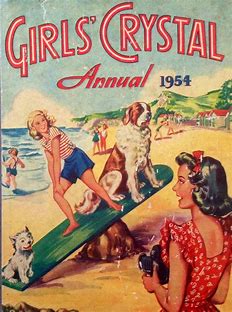 I
was telling you about the shops - opposite Mr Ellis's general store,
where we bought our sweets, ice creams, pop (Tizer, mainly) and
toothpaste (those little round tins of solid toothpaste that you
softened with your toothbrush and cold water), and various other items,
there was the row of three shops that ended with Jacomelli's the
butcher. I believe one of the other two shops was a ladies'
hairdressers, but I can't swear to it; I have no idea what the third
shop was. We had our newspaper delivered from Mr Lees's post office
down on the main road, which was Ermin Street, and ran from Cheltenham
to Gloucester. I have no idea if this was the original Ermin Street
built by the Romans, but it was certainly a very straight road. If you
followed it the other way, as though you were headed to Cheltenham, you
came to a large roundabout, and if you went straight on, to the East,
you climbed up into the start of the Cotswolds. Turn right and you went
to Cranham Woods, and the top of Cheeseroll Hill. Turn left and you
went to Charlton Kings, the racecourse, and finally Cheltenham. When I
was four and a half years old, I started school. I always thought that
my first school, which had one class, one classroom and about twenty
pupils, was in Shurdington, and there are plenty of references on the
web about the little school at Shurdington. But it's in the wrong
direction. My most vivid memory is of clinging to one of the poles in a
double decker, hanging on for dear life as it climbed a very steep hill
after turning right and passing Cranham Woods. Either way, I attended
this one form school for just a few months, because in the summer of
1951, Brockworth New County Primary School was opened, Jean was in the
top year, and was a prefect, whilst I was in the bottom year. I
was telling you about the shops - opposite Mr Ellis's general store,
where we bought our sweets, ice creams, pop (Tizer, mainly) and
toothpaste (those little round tins of solid toothpaste that you
softened with your toothbrush and cold water), and various other items,
there was the row of three shops that ended with Jacomelli's the
butcher. I believe one of the other two shops was a ladies'
hairdressers, but I can't swear to it; I have no idea what the third
shop was. We had our newspaper delivered from Mr Lees's post office
down on the main road, which was Ermin Street, and ran from Cheltenham
to Gloucester. I have no idea if this was the original Ermin Street
built by the Romans, but it was certainly a very straight road. If you
followed it the other way, as though you were headed to Cheltenham, you
came to a large roundabout, and if you went straight on, to the East,
you climbed up into the start of the Cotswolds. Turn right and you went
to Cranham Woods, and the top of Cheeseroll Hill. Turn left and you
went to Charlton Kings, the racecourse, and finally Cheltenham. When I
was four and a half years old, I started school. I always thought that
my first school, which had one class, one classroom and about twenty
pupils, was in Shurdington, and there are plenty of references on the
web about the little school at Shurdington. But it's in the wrong
direction. My most vivid memory is of clinging to one of the poles in a
double decker, hanging on for dear life as it climbed a very steep hill
after turning right and passing Cranham Woods. Either way, I attended
this one form school for just a few months, because in the summer of
1951, Brockworth New County Primary School was opened, Jean was in the
top year, and was a prefect, whilst I was in the bottom year.
I loved my time at this brand new school, and remember at least two of
my favourite teachers, Miss Paige and Mr Rossiter, both of whom brought
out the best in me, so much so that at age ten, I was considered good
enough to sit the 11+ exam. I remember Brenda Offer, who lived in
Boverton Drive, and who became my regular country dance partner. She
was probably the first girl I was in love with. I remember Joan Mclaren
and her older brother Gilmour McLaren. I remember Thomas Tullis, who
shut my thumb in the French doors, an excruciatingly painful injury for
which I still bear the scar. I remember Mr Gillow, the headmaster, who
punished me for leading a revolution against the horrific lumpy custard
they served us with our school dinners, and I remember his son Robert
Gillow, also in my class and several months older than me, who sat the
11+ at the same time as me, and failed, much to the disgust of his
father. At school break times we played games like "What's The Time Mr
Wolf?", and rounders and so on - I wasn't particularly good at games,
being bookish, and when we went to the playing fields for a kickabout,
I invariably made an excuse to go home early so that I could sit up in
bed and read my books and comics. During my time at Brockworth New
County Primary School, I learnt to read and write well, and had a huge
vocabulary. I read classics and adventure stories by people like
Charles Dickens, Robert Louis Stevenson, R M Ballantyne, whilst at the
same time discovering the joys of John Dickson Carr, John Creasey,
Leslie Charteris, Dennis Wheatley, Edgar Rice Burroughs and so on. I
remember our class being given a project, to write a nonfiction book
about something we were passionate about.I chose Ocean-going liners and
duly wrote off to companies like Cunard and P&O, asking for their
brochures, which I used to write my book. I loved the idea of
ocean-going liners, but never got round to sailing on one. Whilst on
holiday in Ramsgate, we went, every year, on a motor boat trip out into
the channel, retracing the journey undertaken by this actual boat, when
the flotilla of boats and ships went to rescue the survivors of
Dynkirk. The captain of the boat had actually sailed his boat to
Dunkirk and had brought back twenty or so survivors before turning
round and going back for more. It was something both thrilling and
exhilarating to think I was following in the footsteps of my wartime
heroes.
The small print: Books Monthly, now well into its 24th year on the web, is published on or slightly before the first day of each month by Paul Norman. You can contact me here. If you wish to submit something for publication in the magazine, let me remind you there is no payment as I don't make any money from this publication. If you want to send me something to review, contact me via email at paulenorman1@gmail.com and I'll let you know where to send it.
|
|
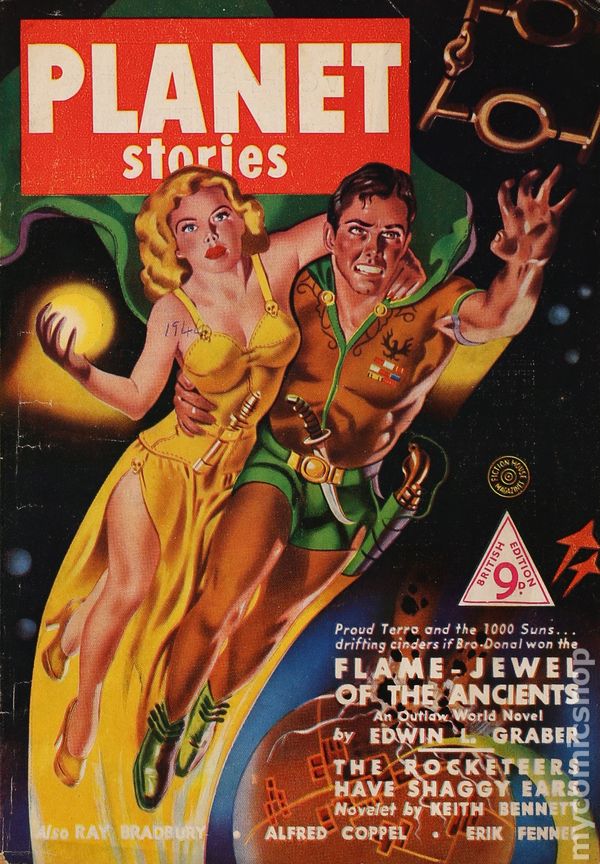
,
|
